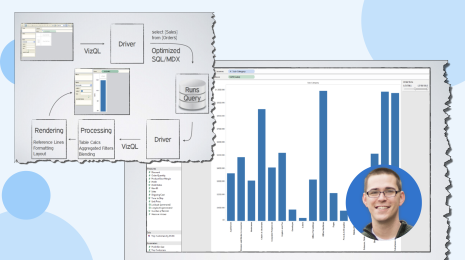A Case for Naps & Noon Start Times with John Medina
Any concerns that John Medina’s keynote about the business brain and sleep would draw yawns were immediately put to rest. The University of Washington developmental molecular biologist jumped right into his topic with energy and stage presence. Medina started with a brief overview of what science does and does not know about the brain, disproving common brain myths, and then shared his favorite photos of how to fail a test with dignity. His remaining presentation was split between two key points: The role of sleep on normal attention states and sleep’s relevance to the real world.
“[The human brain is designed best for] solving problems related to surviving in outdoor settings in unstable meteorological conditions while in constant motion. Which is the complete opposite of a cubicle!”
Delving deeper into human behavior, our sleep and awake cycles are composed of two opposing forces that interchange in a 24-hour day: Circadian Arousal System and Homeostatic Sleep Drive. In essence, one makes the brain tired, the other awake. The critical point though, is when the two cross, usually around noon. At midday when both systems are equal, our brain is deciding if it needs to stay alert into the night or can relax. What helps our brain with this decision? A nap; 26-minutes to be exact! The study that Medina shared showed a 34% performance increase with rocket scientists when allowed a daily 26-minute nap. If rocket scientists can benefit that much, imagine how us data nerds can improve!

With a brief explanation of how to get the most from our brains when sleeping, Medina went into his second key point, sleep’s relevance in the real world and why we need it. He first described the predictable collapse of each cognitive area from sleep deprivation.
- Mood is affected first, decreasing ones ability to handle stress and in Medina’s words, “Become pissed quickly.”
- Next, cognition regulation goes down, affecting working memory and intelligence.
- The third affected area is motor skills. Simple tasks like typing and writing become impaired.
- Finally, if a person is extremely sleep deprived, which can happen after just 45 hours of no sleep, hallucinations can occur. The affects can be so strong as to mimic the affects of LCD!
Medina next gave several examples of the affects from sleep deprivation.
- In the first 6 months of having a baby, marital conflict in King County, Washington increases by 9 fold.
- Pulling an all nighter creates a cognitive panel similar to a person with a BAC of 0.1.
Now the good news. All of this can be avoided by getting enough sleep. For most people, 8 hours is the ideal amount. What Medina and other scientists have learned is sleep is not restorative for our bodies or brains. Instead, our brains repeat things we learned throughout the day thousands of time while sleeping. Our brain is learning while we sleep! Medina shared several studies in which productivity or solutions came more easily and faster when a person was able to sleep 8 hours. In fact, a productivity increase of 3X is often seen when comparing sleep deprived workers to well rested ones.
Medina’s final thought for the audience is an ideal we can all take to heart, in our personal and professional lives, “Getting 8 hours of sleep may be the best career decision you make.”








